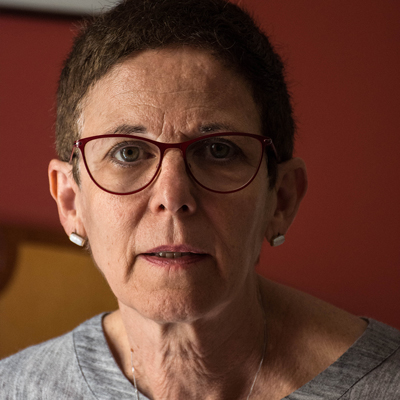Kaleidoscope Coral Regí
4. Kaleidoscope
We need to change the purpose of education

Coral Regí, head teacher of Escola Virolai in Barcelona
Sometime around 2004, we began to rethink our task as a school. The world was changing and the Internet was one reason why. But there are many, and more transcendental, changes happening that require us to rethink not what we do at the school and at other educational institutions, but our very function. We are in the midst of a process of profound transformation that involves reconsidering the WHY, what and how, whilst assuming that the when is a continuous process of reflection and improvement. It is thus not a matter of time but of direction. It is no longer simply a question of changing our education models, nor about innovating or introducing new technologies, let alone incorporating more and new subjects. It is about changing the goal, the PURPOSE of education.
We need to change the WHY, because right now competency-based and lifelong learning are already an unavoidable requirement. The new education means preparing people to experience changes as opportunities. We do not need disciplined students able to parrot what they have learnt. We must not educate students for stability or obedience, but rather for adaptation and taking risks, because that is what they will need. The youths leaving our schools will be asked not what they know, let alone what degree they hold. More than anything else, they will be asked what they know how to do and what they are capable of learning in order to come up with and tackle new challenges. We need to educate people who experience the act of learning, of refreshing their knowledge, of reinventing and recreating themselves, as their way of life, without distress. People prepared to manage their own lives, to take care of themselves, to acknowledge their feelings, to love and respect others, to coexist.
We need to help these young people understand personal effort as an experience in its own right that requires them to challenge themselves in order to advance in their self-restraint and motivation. Striving because someone else has told you to is a thing of the past. Above all, they must be perseverant. They must not be punished for making mistakes, because mistakes are a source of learning and personal growth. And let us be clear. That is the key to personal success, above and beyond capabilities or social origin: persistence, effort and tenacity based on self-confidence.
We must make progress on relevant, experiential learning that guarantees that students will acquire the skills they need to continue learning and, especially, all those skills that make them grow their awareness of how they learn, because personal reflection is also key! They need to experience learning as a process that raises more questions, that opens doors to continue learning, that gives them wings to be independent men and women, able to learn, to question reality with critical, divergent thinking, to apply their knowledge, and to create new knowledge in new contexts.
To educate in this context, teachers and educators must rethink our role. We must understand that it is no longer to convey content, but to support students in their process of personal growth. We need educators who help discover each individual’s talents, who stimulate each individual to continue learning. Nor should schools and educators ever stop learning. We need schools that integrate learning inside and outside the classroom and that thus require a joint effort by families, community, leisure activities, and the city. Schools must also be based on cooperative work and networking, between students, but also between educators, families and the organizations around us. This requires sharing objectives and compensating for inequalities. It requires consistency.
We often link the need for educational change to the need to adapt to companies’ new professional requirements. Obviously, these demands must be taken into account. However, the educational change must go much deeper. This is not a change to make better professionals, to facilitate entry in the job market; it is a change to prepare for the WORLD, which is already different! It must not be a superficial change at first-world schools to help students find better jobs. We need everyone from our first world, where so many young people are pushed out of the school system, with our country’s alarming drop-out rates. And we need the new education to reach all children anywhere in the world. Because every child has a right to a transformative education.
